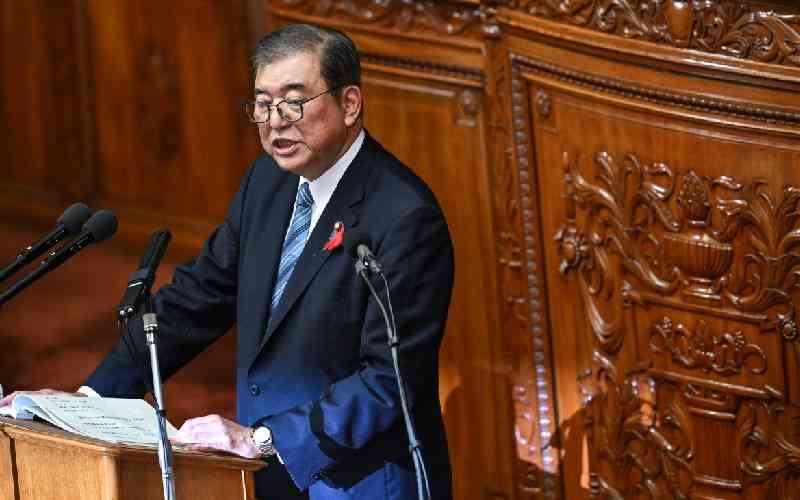×
The Standard e-Paper
Fearless, Trusted News

Japan's new Prime Minister Shigeru Ishiba warned in his first policy speech Friday that "today's Ukraine could be tomorrow's East Asia" while also dubbing the country's low birth rate a "quiet emergency".
"Many fear that today's Ukraine could be tomorrow's East Asia. Why did deterrence not work in Ukraine?" Ishiba told parliament.